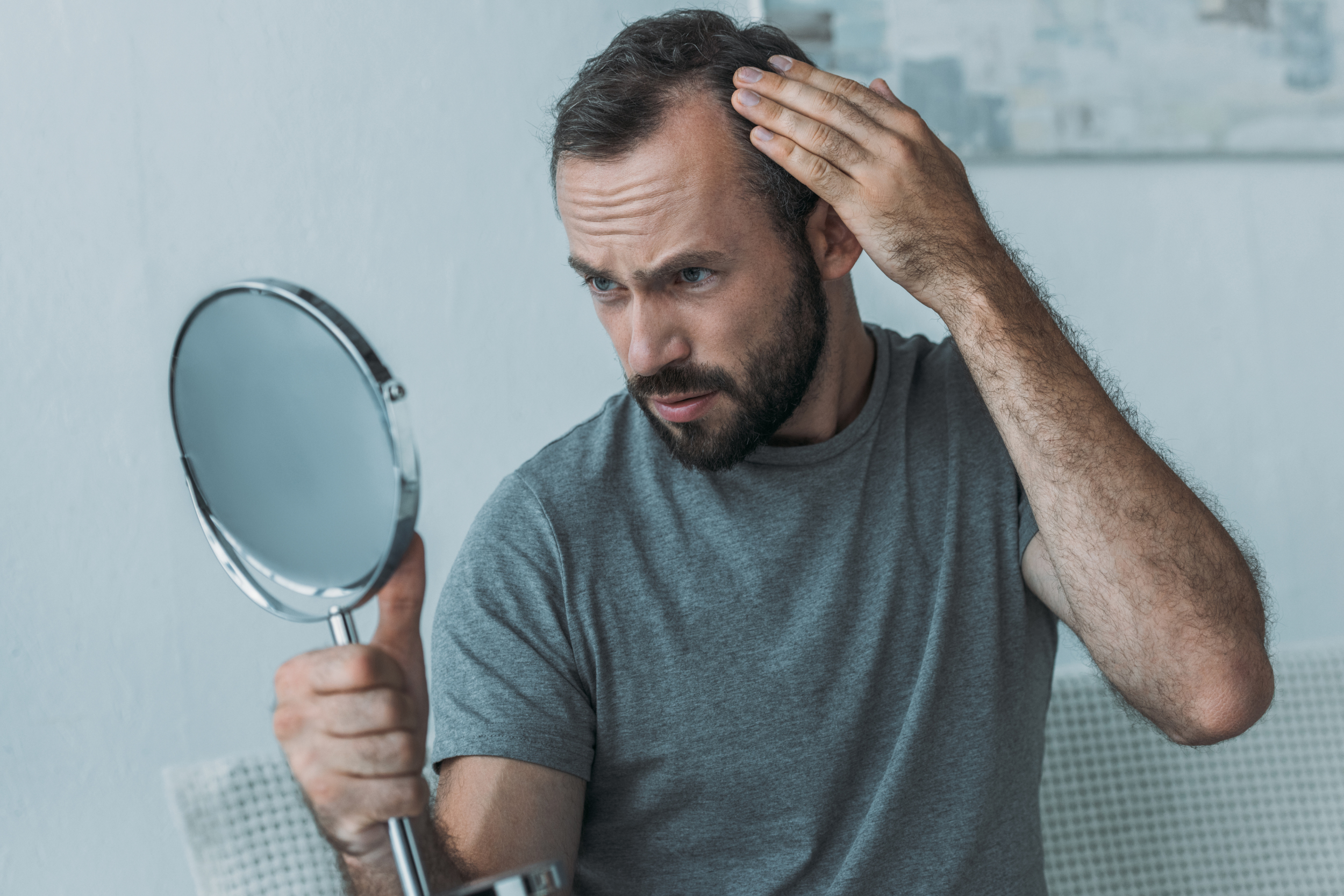Male-pattern baldness and female pattern baldness are increasingly common problems. Also known as androgenetic alopecia, hair loss is a problem that affects approximately 80 million people in the US. While it is a more frequent problem for men, this kind of hair loss is not uncommon in women. 30 million people experiencing hair loss are women, while the majority, 50 million, are men.
Hair loss is a common problem, but nobody wants to have it. If you are suffering from hair loss, you are wondering why that might be happening and whether it is possible to grow your hair back. There is a growing trend of seeking stem cell therapy for hair loss. The question is, can stem cells help with hair loss? If you are wondering whether stem cell therapy can help with hair loss, we encourage you to read on to get a better understanding.
Why Does Hair Loss Happen?
Hair loss like in male- and female-pattern baldness is caused by various factors. It could be due to high levels of stress, illnesses, or even genetic factors.
If you have seen hair loss prevention commercials that promote products that can regrow your hair, you might be curious about whether those products work. Several of them promote their new and improved formulas to help your hair grow again by rubbing in the product.
Unfortunately, the reasons for hair loss are not as simple, and they will not go away by rubbing something into your scalp. The ointment needs to have the ability to activate stem cells in your scalp to ensure that your hair follicles are doing their job.
Your hair follicles need to be healthy so they can grow hair. If you do not take care of your hair, you can begin losing it even before genetic factors come into play. Leading a healthy lifestyle can promote better hair growth and reduce hair loss. Staying properly hydrated and eating a balanced diet can provide you the nutrients necessary to promote hair growth.
Using the right products in your hair care routine also encourages hair growth and reduces the damage done to your hair by environmental factors. If you have long hair, routine trimming can eliminate split ends to encourage continued growth.
Protecting your hair from the elements can also reduce hair fall. Too much exposure to the sun is not good for your hair. Too much heat can also damage your hair and weaken the hair follicles.
The hair stem cells are called dermal papillae. These cells have a specific lifespan, after which the hair follicles begin breaking down and no longer produce more hair. These follicles tend to shrink over time, gradually getting to the point where hair cannot grow out of them. The result is hair loss and baldness.
Men are likelier to lose all their hair due to male-pattern baldness compared to women losing their hair due to female-pattern baldness.
For men, it begins with a receding hairline from the front of the head that moves upwards. The crown begins to thin, and it can eventually lead to overall hair loss. With female-pattern baldness, the hair begins to become brittle and does not grow longer. The hair begins thinning at the top of the scalp and then the parting of the hair. Gradually, it could begin receding around the ears and temple, but women are not as likely to begin going bald.
How can Stem Cells Help Hair Growth?
Stem cells are specialized cells in the body that can perform various functions, including repairing damaged cells. They can effectively replace damaged cells by replicating them. Stem cell therapy has been proven to help with hair regeneration when a person begins experiencing hair loss.
A person’s stem cells can derive the cells necessary to regrow your hair. However, stem cell therapy using human umbilical cord tissue-derived mesenchymal stem cells (or HUCT-MSCs), platelet-rich plasma (or PRP), and a specialized line of dermal papillae cell-derived growth factors can encourage hair growth. The complex functions stimulate hair follicle development and suppress hair cell death signals to achieve this through stem cell therapy for hair loss.
How Innate Healthcare’s Stem Cell Therapy for Hair Loss can Help
At Innate Healthcare, we use a unique approach that combines HUCT-MSCs, hair follicle cells, and PRP produced in our lab to expand your existing hair cells and stimulate the growth of blood vessels that can encourage hair growth. We deliver these cells through a sophisticated autoinjector delivery system to achieve pinpoint accuracy with minimal discomfort during the procedure.

Our unique blend of growth factors and cells encompass the most successful hair loss treatments in existence today.
In addition to restoring your hair follicles to encourage growth again, we also identify the factors reducing stem cell activity and hair follicle recovery. These could be several reasons that can be affecting your hair growth, including hormonal issues, immune system conditions, environmental factors, stress, aging, and nutritional factors.
We tailor our protocols based on what we find in your specific case to achieve the best results in helping you with hair loss using stem cell therapy. Additionally, we use a holistic approach that can provide you with a course of treatment that works best for you. The protocols for your stem therapy for hair loss can vary, and some of these protocols can include:
- Administering stem cells, hair follicle cells, and exomes with PRP. We apply a numbing solution to the area we perform the procedure on to minimize any discomfort.
- We provide nutritional guidelines, nutraceuticals, and herbal medicines that can encourage hair growth after the treatment.
- We recommend another treatment after six weeks. Proper hair restoration requires four treatment sessions but provides effective and noticeable results with each session.
If you are interested in using our stem cell therapy for hair loss to begin regrowing your hair, you can easily set up a consultation and an exam with us. We will provide you with the best possible recommendation for treating your hair loss and helping you grow a healthier head of hair. Schedule your consultation by calling us at (602) 603-3118 or click here.




